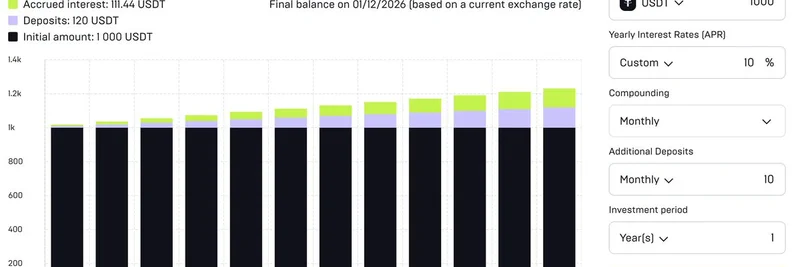Hey there, crypto enthusiasts! If you've been keeping an eye on the regulatory landscape, you might have caught wind of some big news from the Commodity Futures Trading Commission (CFTC). In a move that's got the community buzzing, the CFTC has outlined a pathway for non-US crypto exchanges to let American traders back onto their platforms. We're talking heavyweights like Binance, Bybit, and OKX—exchanges that many US folks have been locked out of due to strict regulations.
This development was highlighted in a recent tweet from @TreeNewsFeed, a decentralized news aggregator, which announced: "[🌲] CFTC TO CREATE PATHWAY FOR US CITIZENS TO TRADE ON OFFSHORE EXCHANGES SUCH AS BINANCE, BYBiT, OKX." You can check out the original post here.
But as Tiger (@NotChaseColeman) pointed out in his reply, there's more to this than meets the eye: "This is meant to create more oversight over customers rather than move you away from trading onchain. The USG already labeled Binance a 'US financial institution.'" See the full thread here.
Let's break this down simply. The CFTC, which oversees futures and options trading in the US (think derivatives like crypto futures), issued an advisory clarifying how foreign exchanges can register as Foreign Boards of Trade (FBOTs). This registration would allow them to offer direct access to US customers without running afoul of the law. It's not a free-for-all—exchanges still need to comply with CFTC rules, including customer protections and reporting requirements.
According to reports from Bloomberg, this could be a game-changer for liquidity in the crypto markets, as US traders bring significant volume. Similarly, The Block notes that this guidance comes after years of US regulators pushing offshore firms out, only to now provide a "path back."
Now, how does this tie into meme tokens? Meme coins like Dogecoin, Shiba Inu, or the latest viral sensations often thrive on decentralized exchanges (DEXes) built on blockchains like Ethereum or Solana. These are "onchain" trades—peer-to-peer, without intermediaries, which dodges a lot of traditional oversight. The CFTC's move is primarily about centralized exchanges (CEXes) and derivatives, not spot trading of meme tokens directly.
However, it could indirectly boost the meme token ecosystem. More US liquidity flowing into CEXes might spill over to onchain markets, as traders arbitrage between platforms or use CEXes as on-ramps to buy meme coins. On the flip side, Tiger's comment rings true: this isn't about embracing decentralization; it's about extending regulatory reach. By labeling giants like Binance as US financial institutions (as part of their massive settlement with US authorities), the government is tightening the screws on customer data and compliance.
For meme token holders and creators, this underscores the appeal of staying onchain. DEXes like Uniswap or Raydium offer pseudonymity and freedom from KYC (Know Your Customer) requirements that CEXes enforce. If you're diving into meme tokens, remember: while CEXes might become more accessible for US users, the real wild west—and potential alpha—lies in decentralized protocols.
What do you think? Will this bring more normies into crypto, pumping meme token volumes, or is it just another layer of big brother watching? Drop your thoughts in the comments below, and stay tuned to Meme Insider for more updates on how regulations shape the meme coin meta.
If you're new to this space, here's a quick glossary:
- CFTC: Commodity Futures Trading Commission, a US regulator for derivatives markets.
- Offshore Exchanges: Crypto platforms based outside the US, like Binance (headquartered in the Cayman Islands).
- Onchain Trading: Transactions directly on the blockchain, often via DEXes, without centralized intermediaries.
- Meme Tokens: Cryptocurrencies inspired by internet memes, known for high volatility and community-driven hype.
Keep building, keep memeing! 🚀

